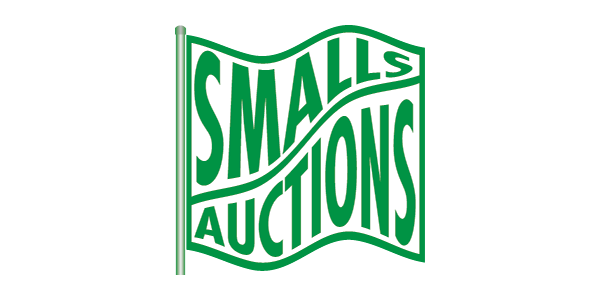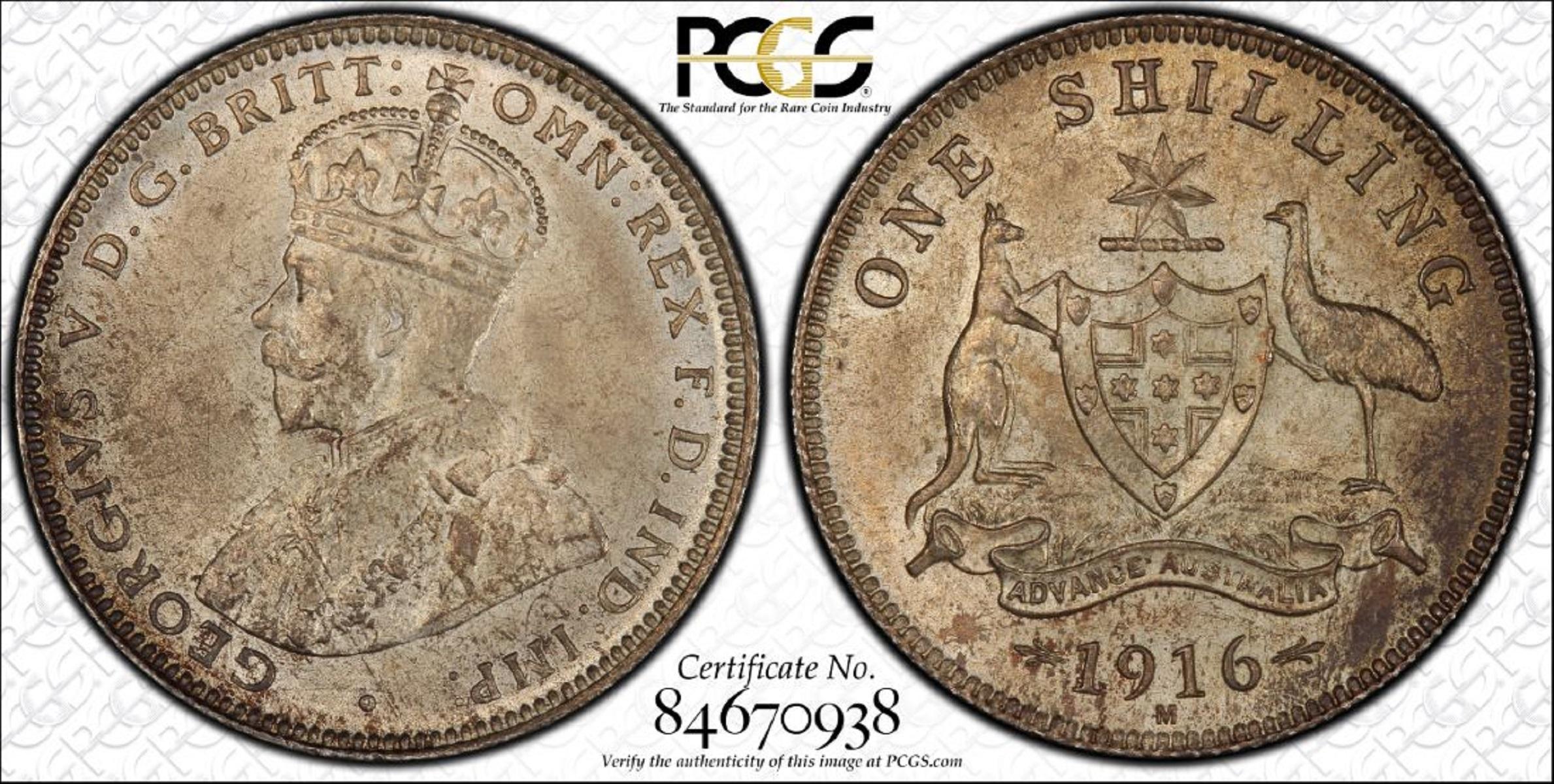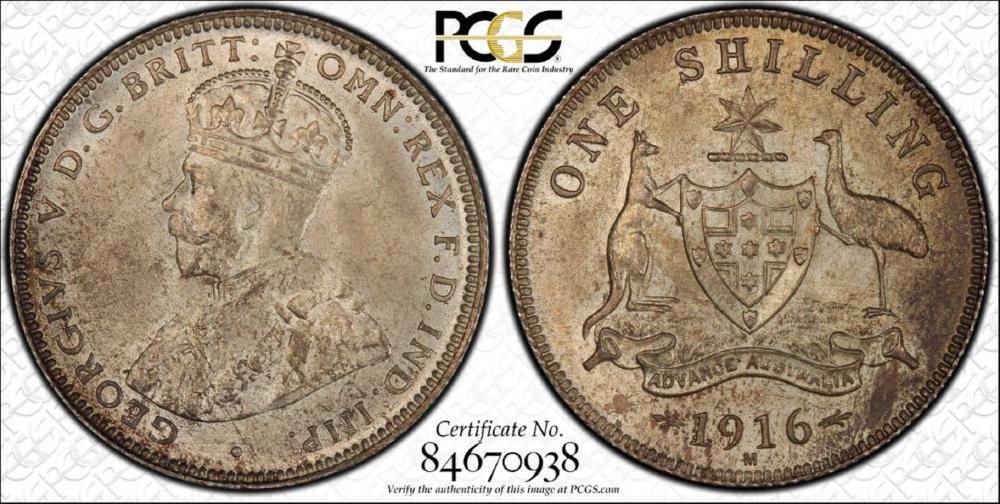Lot 33


Gun metal toning
-
Provenance:
- Coins, Australia & New Zealand Exhibited:
- Collectibles Literature:
- 355 Medium:
- Coins, Monies & Stamps Notes:
- Sometimes when you send across a coin to a third-party service to be graded you can be disappointed with the result. Not because you disagree vehemently with the grade it has been assigned, although we do think our coin could have gone one point higher, but because the service fails to recognise characteristics that you have pointed out to them. It is believed that at least some but probably all the ?proof? threepences and sixpences contained in the Australian 1916 Proof sets were struck at the London Mint. It is also strongly believed that the Melbourne Mint was responsible for adding the shillings & florins to the sets which are certainly not as sharply struck, and are better described as ?specimens.? A noted feature on the majority of 1916 ?Specimen? shillings is the one o?clock die upset on the reverse, and in fact some ?specimens? sighted in sets, have been catalogued with up to a three o?clock die rotation suggesting that the reverse die used to strike the coins was very insecurely held. Another odd feature which can occur on the 1916 ?Specimen? shillings is the appearance of multiple die breaks on the reverse. This would certainly confirm a Melbourne striking as so obvious a flaw presentation coins would unlikely be tolerated by the Royal Mint in London. This brings us to our 1916 Shilling graded PCGS MS65. It has not been recognised by PCGS as a ?specimen? even though it has features that concur with coins found in 1916 ?Proof? sets. i.e. it is sharply struck with high rims, a one o?clock reverse upset, die polish marks and die cracks up the spine of both the kangaroo and emu. It appears that in the case of 1916 'Specimen' shillings the context of the blue presentation box is everything. That PCGS has not recognised it as a ?specimen? is not unusual as we recall the furore that erupted a few years back when PCGS put a 1916 ?Proof? Florin into an MS Holder. The coin in question was catalogued as a 'proof' by a major Australian auction house and was purchased for a lot of money by a respected coin dealer. In fact, to date PCGS has yet to recognise any Australian 1916 coins as ?proofs? or even ?specimens? even though the threepence and sixpences from the serts are undeniably 'proofs' and that disputed ?proof? Florin still sits in an M(int) S(tate) 66 holder. Whether you consider our 1916 Shilling to be a ?proof?, a ?specimen? or a ?mint state? coin it is still a cracking example. It has far fewer surface marks than the three coins placed in front of it in the PCGS census and in our opinion it is a strong candidate for an upgrade.
Accepted Forms of Payment:
American Express, MasterCard, Money Order / Cashiers Check, Paypal, Visa, Wire Transfer
Shipping
AUSTRALIA: Purchases within Australia will be charged a MINIMUM SHIPPING FEE of $5.50 and will be sent by Registered Post. Additional insurance is optional at the buyer's expense.
INTERNATIONAL: Overseas purchases will be charged a MINIMUM SHIPPING FEE of $20.00 and will be sent by Registered Post International. Additional insurance is optional at the buyer's expense.
Both Australian and International packages are traceable in transit and require a signature on delivery.
Smalls Auctions
You agree to pay a buyer's premium of up to 20% and any applicable taxes and shipping.
View full terms and conditions
| From: | To: | Increments: |
|---|---|---|
| A$0 | A$249 | A$5 |
| A$250 | A$999 | A$10 |
| A$1,000 | A$4,999 | A$25 |
| A$5,000 | A$9,999 | A$50 |
| A$10,000 + | A$100 |





